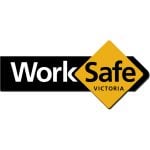

Warning: This post deals with mental health and may be triggering for some readers.
Screamed at. Spat on. Punched. Called a “fat sl*t”. Degraded. Threatened. Stalked. Sexually harassed and assaulted. Strangled… and worse.
These are just some of the things our healthcare workers have to deal with at work. Every single day.
Violence and aggression in the healthcare sector happens. Every shift, the people who dedicate their lives to helping us are abused, by us, for doing their jobs – it’s called occupational violence and aggression (OVA), and it needs to stop.
It’s not just the more extreme acts mentioned above. Any of us could be guilty of committing OVA when we’re under stress, without even realising. It’s a passive aggressive comment about how long you’ve been waiting to be seen by a doctor. It’s an abusive insult muttered when the ICU staff can’t let you see your loved at that very moment. It’s lashing out at the paramedic who’s trying to resuscitate your friend. It’s hurting a nurse because you’re hurting inside.
Eye rolling, yelling, swearing, derogatory and abusive language, threatening people, making aggressive gestures or intimidating someone – it’s all unacceptable behaviour that has a huge impact on the health and wellbeing of our healthcare workers – and it’s never OK.
Being exposed to violent or aggressive acts isn’t in any healthcare worker’s job description.



Top Comments
What about the Mental Health staff that cop abuse, physical assault, spat at & threatened everyday. NO ITS NOT OK
Sadly all these tales & much more are what ALL these Health Care Professionals endure every day. To me Nurses & other Health Care people are the unsung heroes of the Medical Profession, under paid, under valued & far to often being the people at the coal face of the Hospital, have to bear the brunt of so many ignorant, rude, sexist, & downright "nasty" comments & actions. I realise that many patients & visitors are upset, traumatised etc, but taking out any of these frustrations etc on to the Nursing staff is not on!